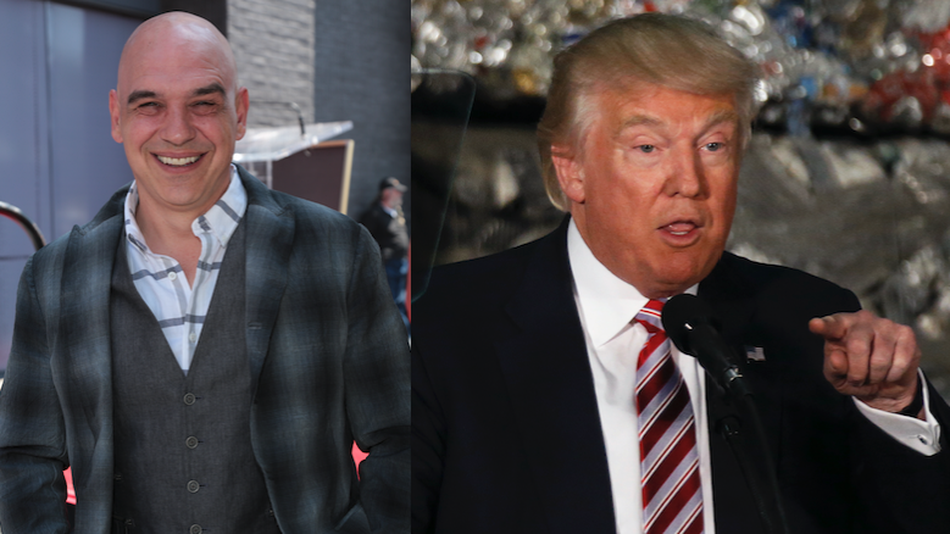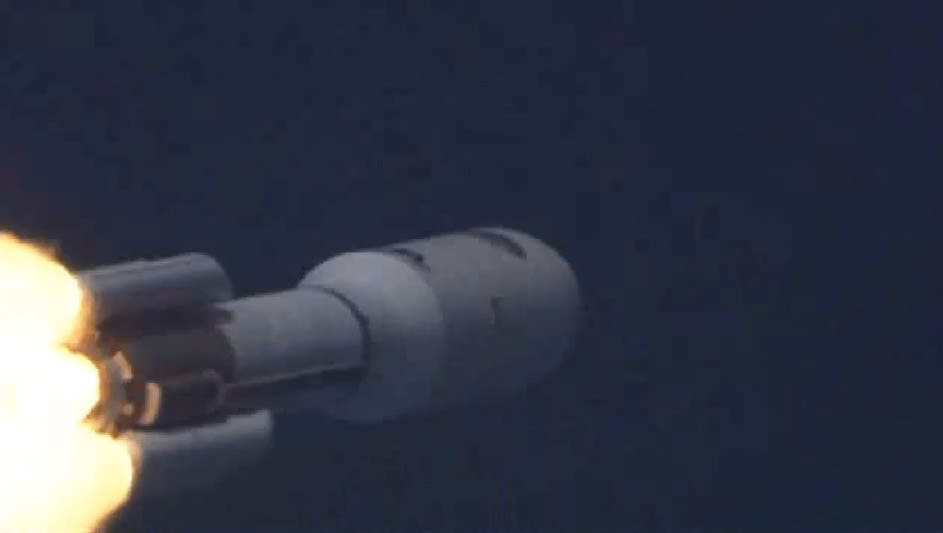Russian rescue teams comb debris-laden plane crash site
Mar 22, 2016
Russia's Life News broadcast the footage allegedly of the plane its fatal smash near Russian airport Rostov-on-Don. The company said the Cypriot pilot and Spanish co-pilot each had almost 6,000 hours of flying experience.
Tyler Perry's 'The Passion' Earns Low Ratings for Fox
Mar 22, 2016
The live telecast Sunday, hosted by Tyler Perry, drew a meager 6.6 million viewers, according to the Nielsen ratings company.
Russia may amend its civil aviation rules after flydubai crash
Mar 22, 2016
He said that a sudden change in wind speed and direction could have caused the wings to abruptly lose their lifting power. The plane's pilot had circled the airport hoping the weather would clear, Russia's emergency minister said.
Concert Pianist's 2 Daughters Killed, Wife Stabbed in Texas
Mar 22, 2016
Kholodenko and Tsygankova married in 2010 but filed for divorce in November, according to court records obtained by local media. Kholodenko was scheduled to play with the Fort Worth Symphony Orchestra Friday night, but his performances have been cancelled.
Man Arrested for Punching Protester Is an Air Force Member
Mar 22, 2016
Another video posted on Twitter, taken from only a few feet away, offers a more graphic view of the incident. He was stationed in South Korea twice and in New Mexico before moving to Davis-Monthan in December 2012.
Bernie Sanders Wins Democrats Abroad Global Primary Against Hillary Clinton
Mar 22, 2016
Appearing later Friday on CNN's "OutFront" with Erin Burnett, Clovis said "someone who would know" told him a contested convention is "not going to happen".
Virginia heats up late to defeat Butler
Mar 22, 2016
The four-guard lineup is the biggest adjustment, and it really helped us. "We came in a little tougher in this game", he said. He told Bennett he wanted to guard Chrabascz, who scored 24 points in the first 24 minutes as Butler took a five-point lead.
Trump warns of riots if he loses nomination with most delegates
Mar 22, 2016
But, after third place John Kasich won his home state of Ohio, Mr Trump expressed concern that he could be shut out. After yesterday's victories, Mr Trump needs to win about 54%t of the roughly 1,100 delegates still up for grabs.
Newcastle grabs late equalizer in 1-1 draw vs Sunderland
Mar 22, 2016
If I was Rafa, I'd be thinking they are winnable". "We need four wins from the last eight, so it's now must-win rather than draw". The main thing is to do the job and take the three points because that will give everyone a good feeling.
Taylor Swift sings at Reese Witherspoon's B-day bash
Mar 22, 2016
Taylor Swift even organized and put a private show for Reese and the other lucky guests as reported by ET Online . Hard to believe Reese Witherspoon is hours away from reaching the big 4-0, as she doesn't look at day over 30.
Obama's list of invitees in Cuba 'Non-Negotiable' with Havana
Mar 22, 2016
Supporters of Obama's policy say the total number of Republican supporters in the House and Senate reaches several dozen. More than 300 people have been arrested since March 8 in Havana , the eastern city of Santiago and elsewhere, said Ms.
Trump Warns of Riots if Denied Republican Presidential Nomination
Mar 22, 2016
Republicans: Homestate governor John Kasich (44.2%) held a sufficient lead over Mr Trump (32.2%) to deny him a clean slate win. Sanders , who was counting on his strong arguments against free trade, failed to make an impact on the industrial Midwest.
New Mexico health officials confirm first case of Zika virus
Mar 22, 2016
The FDA granted its emergency approval to the new lab test on Thursday, the Centers for Disease Control and Prevention said . For healthy adults the virus is not very serious but it has been linked to birth defects and outcomes.
Two chunks of the same comet buzzing Earth this week
Mar 22, 2016
The roughly 375-foot-wide (115 meters) comet is visible only with the aid of a professional-grade telescope, NASA officials said. While astronomers will aim their telescopes at these comets for observation, they'll be hard for the casual observer to spot.
Ben Affleck wants to prove he's just another Batman
Mar 22, 2016
Be proactive - Use the "Flag as Inappropriate" link at the upper right corner of each comment to let us know of abusive posts. When he learns to differentiate between the fact that it's not, that I'm not really getting beat up on camera".


